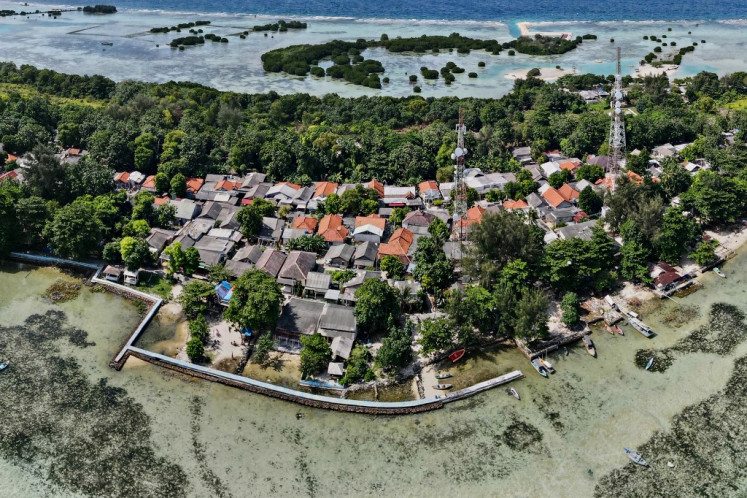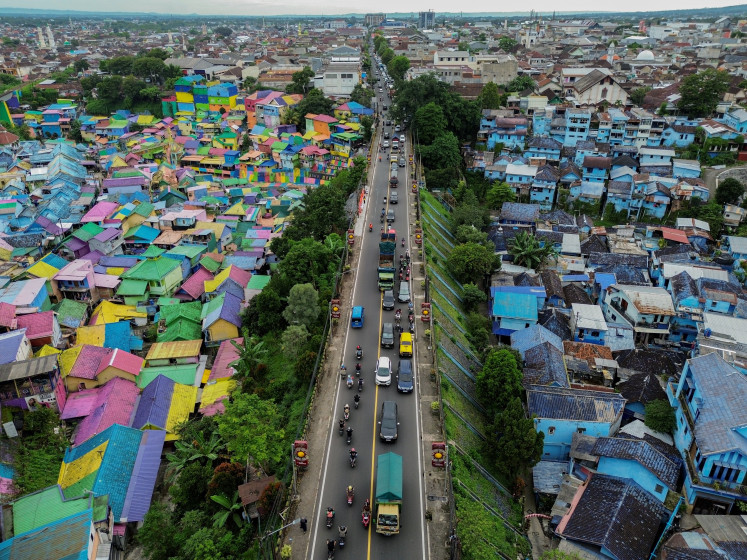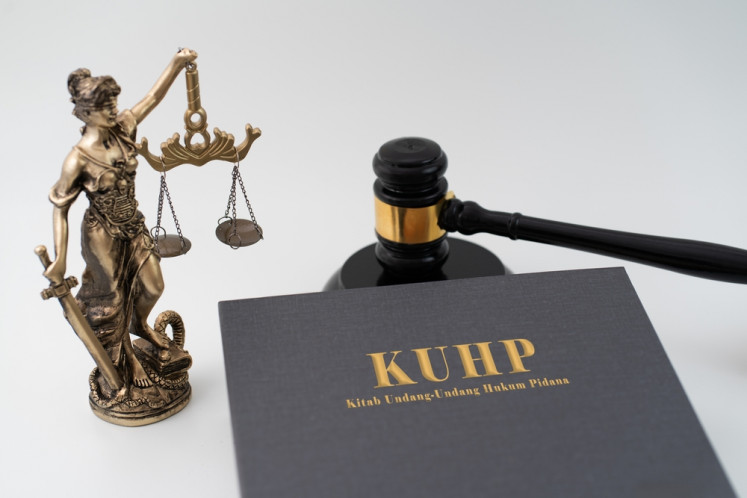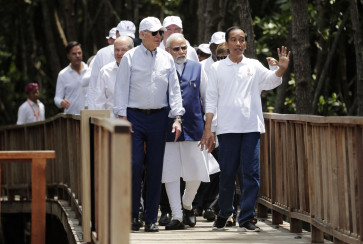Popular Reads
Top Results
Can't find what you're looking for?
View all search resultsPopular Reads
Top Results
Can't find what you're looking for?
View all search resultsBeyond 2024: Indonesia's ascent in global leadership through transformative diplomacy
Indonesia's leadership in setting global norms is not merely about asserting its presence; it is about crafting a world order that resonates with the values and aspirations of the Global South.
Change text size
Gift Premium Articles
to Anyone
 President Joko “Jokowi” Widodo (right) gestures as United States President Joe Biden (front, left), German Chancellor Olaf Scholz (back, left), Indian Prime Minister Narendra Modi (back, center) and other leaders walk together on Nov. 16, 2022, during a tree planting event at the Taman Hutan Raya Ngurah Rai Mangrove Forest, on the sidelines of the G20 summit in Nusa Dua, Bali. (AFP/Mast Irham/Pool)
President Joko “Jokowi” Widodo (right) gestures as United States President Joe Biden (front, left), German Chancellor Olaf Scholz (back, left), Indian Prime Minister Narendra Modi (back, center) and other leaders walk together on Nov. 16, 2022, during a tree planting event at the Taman Hutan Raya Ngurah Rai Mangrove Forest, on the sidelines of the G20 summit in Nusa Dua, Bali. (AFP/Mast Irham/Pool)

In recent days, the Centre for Strategic and International Studies (CSIS) has provided a crucial platform for Indonesian presidential candidates to articulate their foreign policy visions. This initiative has offered a rare glimpse into the strategic thinking of potential future leaders, revealing their perspectives on Indonesia's role in the global arena and their priorities in addressing imminent threats.
As Indonesia stands at a crossroads, the foreign policy strategies of the candidates could shape the nation's trajectory for years to come.
Ganjar Pranowo's approach, emphasizing Indonesia as the "lumbung pangan dunia" or global food granary, reflects a strategic pivot toward food security. Inspired by President Joko “Jokowi” Widodo's “Global Maritime Fulcrum”, Ganjar seeks to position Indonesia as a key player in the global food supply chain, a move made increasingly relevant by the disruptions caused by the Ukraine conflict.
However, his focus on self-reliance and industrialization, while underscoring a pragmatic concept, lacks specificity and innovation. It risks an overemphasis on isolationist policies in an interconnected world and may neglect broader foreign policy issues like defense and technology.
The core of his strategy lies in leveraging foreign policy as a tool for national development, but it remains nebulous without a clear, overarching concept.
Anies Baswedan advocates for a more proactive Indonesian role on the global stage. Critiquing the current government's pragmatic diplomacy as too narrowly focused on economic interests, Anies calls for a more holistic approach.

Drawing from Joseph Nye’s concept of smart power, he suggests a blend of soft and hard power to elevate Indonesia's international profile. However, Anies's vision, while conceptually appealing, is vague and lacks practical details. His ambition for Indonesia to play a greater role in providing international public goods might lead to overstretch of resources, and the absence of a clear definition of the values and types of activism Indonesia should pursue under his leadership creates uncertainty about the direction and substance of his foreign policy.

















